- Home
- Robin Jones Gunn
Sisterchicks in Gondolas!
Sisterchicks in Gondolas! Read online
This is a work of fiction. The characters, incidents, and dialogues are products of the author’s imagination and are not to be construed as real. Any resemblance to actual events or persons, living or dead, is entirely coincidental.
SISTERCHICKS IN GONDOLAS!
published by Multnomah Books
© 2006 by Robin’s Ink, LLC
Sisterchicks is a trademark of Random House, Inc.
Unless otherwise indicated, Scripture quotations are from:
The Holy Bible, New King James Version (NKJV)
© 1984 by Thomas Nelson, Inc.
Other Scripture quotations are from:
The Message by Eugene H. Peterson
© 1993, 1994, 1995, 1996, 2000
Used by permission of NavPress Publishing Group
All rights reserved.
Published in the United States by WaterBrook Multnomah, an imprint of the Crown Publishing Group, a division of Random House Inc., New York.
Published in the United States by WaterBrook Multnomah, an imprint of the Crown Publishing Group, a division of Random House Inc., New York.
MULTNOMAH and its mountain colophon are registered trademarks of Random House Inc.
ALL RIGHTS RESERVED
No part of this publication may be reproduced, stored in a retrieval system, or transmitted, in any form or by any means—electronic, mechanical, photocopying, recording, or otherwise—without prior written permission.
For information:
MULTNOMAH BOOKS
12265 ORACLE BOULEVARD, SUITE 200
COLORADO SPRINGS, CO 80921
Library of Congress Cataloging-in-Publication Data
Gunn, Robin Jones, 1955-
Sisterchicks in gondolas! / Robin Jones Gunn.
p. cm.
eISBN: 978-0-307-56258-6
1. Women travelers–Fiction. 2. Female friendship–Fiction. 3. Venice (Italy)–Fiction. I. Title.
PS3557.U4866S5628 2006
813′.54–dc22
2006006118
v3.1_r1
OTHER BOOKS BY ROBIN JONES GUNN
Gardenias for Breakfast
SISTERCHICK NOVELS:
Sisterchicks on the Loose!
Sisterchicks Do the Hula!
Sisterchicks in Sombreros!
Sisterchicks Down Under!
Sisterchicks Say Ooh La La!
THE GLENBROOKE SERIES:
Secrets
Whispers
Echoes
Sunsets
Clouds
Waterfalls
Woodlands
Wildflowers
TEEN NOVELS:
Christy Miller Series
Sierra Jensen Series
GIFT BOOKS:
Tea at Glenbrooke
Mothering by Heart
Gentle Passages
www.sisterchicks.com • www.robingunn.com
For two amazing Sisterchicks I met thirty years ago:
Ruby, my bunk bed mate in our dorm room in Austria back when our hair was its original color. Cooking with you last summer in our Venetian palace was golden. I love the way we can always pick up our conversations where we left off, no matter how many years or miles have filled the pauses.
And Kate, my sister-in-law, who loved me from day one. I love you back, more than I ever show. Thanks for being more than a relative; you are a true friend and a Sisterchick forever.
Contents
Cover
Title Page
Copyright
Other Books by Robin Jones Gunn
Dedication
Prologue
Chapter One
Chapter Two
Chapter Three
Chapter Four
Chapter Five
Chapter Six
Chapter Seven
Chapter Eight
Chapter Nine
Chapter Ten
Chapter Eleven
Chapter Twelve
Chapter Thirteen
Chapter Fourteen
Chapter Fifteen
Chapter Sixteen
Chapter Seventeen
Chapter Eighteen
Chapter Nineteen
Chapter Twenty
Chapter Twenty-One
Epilogue
Discussion Guide
Bonus Material for Sisterchicks in Gondolas!
“God, my shepherd! I don’t need a thing.
You have bedded me down in lush meadows,
you find me quiet pools to drink from.
True to your word, you let me catch my breath
and send me in the right direction.…
My cup brims with blessing.”
PSALM 23:1–3, 5B (THE MESSAGE)
Prologue
I don’t think I would have gone to Venice if I hadn’t had a crazy thought five years ago that woke me at three o’clock one morning.
I was used to wacky, middle-of-the-night thoughts, but not like this one. Usually I created mental memos such as, “Send Aunt Becky’s birthday card by Tuesday, or it won’t arrive in time.” In my head I would respond, “Okay,” and fall back asleep.
Other times the thoughts came fragmented like, “car insurance.” Those were the ones I hated because I’d lie alone in the darkness wondering, “Am I behind on a payment? Or was I merely dreaming about a late-night commercial with some dancing lizard telling me I was paying too much for my current coverage?”
When I discussed these annoying, sleep-robbing thoughts with my sister-in-law, Sue, she responded, “Welcome to menopause.” Then she told me that she keeps a notepad and pen by her bed and another one in her purse at all times. “That way, if I do go completely insane, at least I’ll have left a trail for the medical community to follow, sort of like bread crumbs.”
Taking her advice, I put a notepad by my bed. That’s why I can still remember the persistent thought that woke me and set this adventure into motion. The 3 a.m. revelation was simple: “You’re not done yet.”
That was it. I wasn’t “done.” Done with what, I didn’t know.
I wrote down the thought, but then, instead of falling back to sleep, I considered all the things I had started but never finished. The list was long. Very few events in my life had unfurled the way I had thought they would. I was too old to start over but too young to roll over and play dead. Such is the muddle of midlife, I told myself. I shouldn’t elevate my expectations this far along in my quota of years. I should be winding down, right?
But at 3 a.m. that particular spring morning, I wasn’t “done” yet. And I didn’t know what that meant.
Sleep wouldn’t return, so I slipped out of bed and made a cup of tea. The sound of the newspaper thumping against the front door of my condo told me the world around me was waking. In a few hours I would leave for work. During the hectic pace of my position as a checkout clerk at Abbot’s Grocery, I would scan dozens of cans of soup and tomato sauce. I would weigh Red Delicious apples (code #4782) and dripping bundles of romaine lettuce (code #4623). I would say, “Have a nice day” more times than any human should have to say that phrase, and I would forget any thoughts that had come to me in the night.
Then, in the wee hours of the next morning, the same thought returned and woke me again. This time I sat up in bed and said aloud, “What? What isn’t finished?” All was silent except for the whirl of the ceiling fan over my bed.
I fell back asleep. My unremarkable life continued at its usual pace for two more weeks.
Then a letter came from Sam, a friend from college who was now the director of an international mission that was based in Europe.
Jenna, would you consider traveling to Venice in July? We need someone to cook at our mission leaders’ retreat. You keep coming
to mind. We were given two comp airline tickets from the U.S. so you can bring a friend. The retreat is only for four days. You may stay at the palace the remainder of the week at no charge. Please respond ASAP.
I read the note again. Venice? Why me? Why now?
I wasn’t a very good cook. Sam knew that because I worked on the kitchen staff one summer at a camp he and his wife ran in Austria. But that was during college. A lifetime ago. Sam and Austria and cooking all happened when I was young and naive and had lofty plans for my life. Then I fell in love, and, ignoring advice from friends and family, I spontaneously got married. I had a beautiful daughter and an unwanted divorce all before I was twenty-seven. That was when my life grew small.
Now I was being invited to be part of something outside the small boundaries of my broken, limited life. And in Europe, no less. Was this the unfinished business?
Sam’s invitation stirred something deep within me. I realized that no matter what age we are, a profound sweetness glides over the human spirit when we are included in a small circle by an old friend. It’s a humbling thing to be chosen.
I cried for the first time in a long time, and then I called my sister-in-law. Sue was the friend I chose to take with me to Italy.
She was coming up for air after the worst two years of her life. Because she never had been to Europe, she understandably was hesitant about leaving home, but she finally agreed. We left behind everything familiar about our lives in Dallas when we boarded that airplane and flew to Italy.
Neither of us expected the transformations that began in us during our week in Venice. Our luxurious makeovers started with morning walks to the panetteria, where we bought our daily bread. Our nails were “manicured” by eager pigeons that we fed from open hands at San Marco Square. Instead of cucumber slices over closed eyes, we opened our eyes wide inside the grand, Byzantine churches and drew in the scent of honeyed candles. We meditated on God and life while listening for the echo of footsteps on the ancient tiles.
So much changed inside both of us on that trip. Sue and I look back and refer to that summer as the summer we were ambushed. Neither of us saw the blessings coming. They just came—and kept coming—and bowled us over.
Sue now has a term for what happened in Venice. She says we were “victims of grace.” I like that. Both of us had been victims of a lot of other stuff over the long years. How sweet of God to make us victims of grace when we were old enough to appreciate what that gift cost Him.
Yes, we were transformed in Venice. We both are convinced that what happened to us never would have happened in Dallas. Not that God can’t change a heart and a life in Dallas—or anywhere else—but they don’t have gondolas in Dallas. And for our transformation, we definitely needed a gondola.
One
From the minute—and I do mean the very minute—that Sue and I exited the Santa Lucia train terminal an unexpected sense of confidence filled me. My journeys during college had taken me all over Europe with only a backpack and a list of the low-priced youth hostels. But I’d never come here, to Venezia, the city that Italy wears proudly like a diamond-studded broach on the cuff of her tall boot.
I led the way down the steps and into the open plaza on the edge of the Grand Canal, feeling like a wayward daughter who had finally come home. Venezia in all her morning glory rushed to greet my senses like a big, fat Italian mama holding out her tawny arms in a welcome.
Sue, however, dipped her chin and gazed at Venice the way one respectfully smiles upon the elderly, not sure whether to sit or to stand in their presence.
“That must be where we buy tickets for the vaporetto,” I said, forging ahead to the ticket booth. Sue let me do the talking as I bought our passage for the floating public transportation that would take us to the corner of Venice where we would stay for the next week.
“Do you have the map?” Sue rifled through her shoulder bag.
“Right here.” I handed it over.
Sue unfolded the map, and I drew in a deep breath of glimmering morning air.
“It’s not the way I thought it would be,” Sue said, looking at the map and looking up at the buildings across the canal.
“How did you think Venice would be?”
“Well, not so old and run-down, I guess.”
“I think that’s part of her charm.”
“Her?” Sue questioned.
“Yes,” I said unapologetically. “Her.”
Sue shot me a skeptical glance as our vaporetto pulled into the dock. We boarded along with a string of locals and a few luggage-lugging tourists. The built-in bench seats on the floating bus were occupied, so Sue and I stood beside a young man who was wearing a pressed and starched chef’s jacket.
I pulled sunglasses from my shoulder bag and set my gaze on the welcoming sight of the sun-baked block buildings.
“I didn’t have enough time to check the map and see where our stop is,” Sue said. “Do you think it’s very far from here? Do you remember?”
“Yes, I remember. It’s not far.”
Sue leaned to the side, resting her hand on her luggage and looking as if she was trying hard to appear relaxed.
Another young man, also in a chef’s jacket, hurried to catch our vaporetto before we left the dock. The late arriver greeted the man beside me with a handshake and a rousing, “Buon giorno!” The two men stood close, shoulders back, hands in motion, as they exchanged an animated dialogue of staccato words. I loved eavesdropping on them even though I couldn’t understand anything they said.
As the vaporetto began its journey down the Grand Canal, a cool breeze set to work, stitching white lace to the crests of the calm waters.
“Isn’t this gorgeous?” I murmured more to myself than to Sue.
“Do you want me to take a picture?” Sue dug into a zippered pouch of her suitcase. “Maybe we could ask someone to take a picture of both of us? How’s my hair? Is it a fright?”
Sweet Sue’s pomegranate red hair was not only her most noticeable asset but also sometimes her greatest liability. This morning a gaggle of wayward rouge-hued strands had taken flight and were veering off in a variety of directions, conducting their own unguided tours of eye-level Venice.
“It could use some attention,” I said delicately. “Don’t worry about the pictures. We’ll have plenty of chances later.”
Sue smoothed her hand over the top of her head, as she tried to assess the damage inflicted by our all-night flight. Reaching into her pocket, she pulled out a hairclip and wrestled with her tangles.
I tucked a few flipped tails of my low-maintenance, unmemorable brown hair behind my ears and noticed an older woman standing across from us who was intrigued with the way Sue was taming her personal shrew. The woman had been in line behind us at the ticket booth. I smiled, but she had her gaze fixed on Sue.
We motored past an unending row of personality-plus buildings that lined the Grand Canal. Most of the four-story boxes were painted in muted earth tones. They showed off their comely window arches, intricate balconies, and deep plaster gashes with as much pride as any soldier who had been wounded and decorated after battle. Clearly, these brave, still-standing offspring of Venezia had earned their medals of honor for years of faithful service and courage in the line of duty.
“Ca’d’Oro?” The older woman tapped Sue on the arm. “Avete un biglietto di Ca’d’Oro?”
Sue’s stunned expression gave away that she had no idea what the woman was asking. Blessedly, the clean-scrubbed chef leaned toward us with a chin-up gesture and asked, “Do you want Ca’d’Oro?”
“Oh, y’all speak English!” Sue turned into her charming Southern self.
“Yes, of course. Do you want Ca’d’Oro? It’s the next stop. She is saying you bought tickets for Ca’d’Oro.”
His accent was mesmerizing. I wanted to say “what?” just so he would keep talking to us. But I knew Ca’d’Oro was the name of the stop where we were supposed to disembark. And, apparently, so did the woman with the keen eye for
details.
“Yes, this is our stop,” I said. “Thanks for your help.”
“Yes, thanks, y’all.” Sue smiled at the chefs and the attentive woman. “Gracias for being so nice.”
“Grazie,” the chef instructed her. “Italiano for ‘thank you’ is grazie.”
“Grawts-ee,” Sue repeated, first to the young man and then to the woman. The chefs grinned and exchanged glances. I wondered if Sue had any idea how undeniable her Texas accent was or what a rarity she must be with her remarkable red hair.
The vaporetto came to a stop. Sue and I stepped off the boat, following several other pedestrians down an alley, and entered a broad thoroughfare. I pulled out a copy of the e-mail that had the directions to where Sue and I were to meet Steph, the woman who had the keys to our apartment.
“If this is Strada Nuova,” I said, “then we should go right and watch for Campo Apostoli.”
“Campo Apostoli is a restaurant, right? Or you said maybe it’s a hotel.”
“I’m not sure. The directions just list Campo Apostoli, as if it will be obvious when we see it. Let’s head this way and find out.”
Sue hesitated.
“It’s okay; don’t worry. I have Steph’s mobile phone number if we get lost.”
“Do you know how to use an Italian pay phone?”
“Probably. I don’t know. We’ll find out. Come on.” I picked up the pace, challenging Sue to keep up.
A surprising number of pedestrians passed us. I wouldn’t have expected so many people to be out early Sunday morning. Some of the strolling people were dressed in casual attire, but most were in nice outfits—“Sunday-go-to-meetin’-clothes” as some of our friends in Dallas would say.
“Did you notice how you and I are the only people on the thoroughfare with luggage?” Sue asked.
“Are we? Well, I don’t imagine we’ll see a lot of other tourists since the place we’re staying is in a residential area.”
“How did these friends of yours find this place?”
“I don’t know. They have their annual strategy retreat in a different place each year, so it’s possible this is their first time in Venice.”

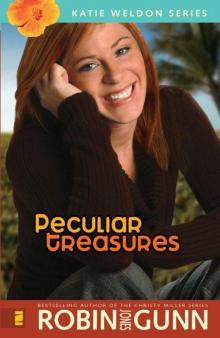 Peculiar Treasures
Peculiar Treasures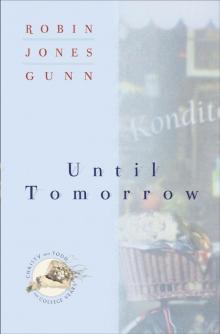 Until Tomorrow
Until Tomorrow Finding Father Christmas
Finding Father Christmas Sisterchicks Down Under
Sisterchicks Down Under Christy Miller Collection, Vol 2
Christy Miller Collection, Vol 2 Sisterchicks Go Brit!
Sisterchicks Go Brit! Sierra Jensen Collection, Vol 1
Sierra Jensen Collection, Vol 1 Engaging Father Christmas: A Novella
Engaging Father Christmas: A Novella Finally and Forever
Finally and Forever Wildflowers
Wildflowers Clouds
Clouds Sierra Jensen Collection, Vol 3 Sierra Jensen Collection, Vol 3
Sierra Jensen Collection, Vol 3 Sierra Jensen Collection, Vol 3 Christy Miller Collection, Vol 1
Christy Miller Collection, Vol 1 Sisterchicks Do the Hula
Sisterchicks Do the Hula Waterfalls
Waterfalls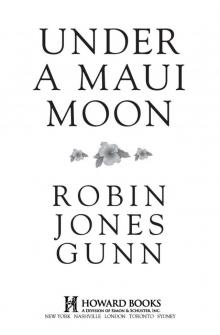 Under a Maui Moon
Under a Maui Moon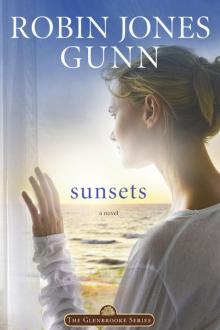 Sunsets
Sunsets Sisterchicks in Sombreros
Sisterchicks in Sombreros Sisterchicks in Gondolas!
Sisterchicks in Gondolas! Sisterchicks in Wooden Shoes!
Sisterchicks in Wooden Shoes! Christy Miller's Diary
Christy Miller's Diary Woodlands
Woodlands Only You, Sierra
Only You, Sierra Sisterchicks on the Loose
Sisterchicks on the Loose Sierra Jensen Collection, Vol 2
Sierra Jensen Collection, Vol 2 Christy Miller Collection, Vol 4
Christy Miller Collection, Vol 4 Kissing Father Christmas
Kissing Father Christmas Sierra Jensen Collection, Vol 4 Sierra Jensen Collection, Vol 4
Sierra Jensen Collection, Vol 4 Sierra Jensen Collection, Vol 4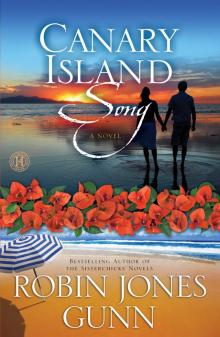 Canary Island Song
Canary Island Song Secrets
Secrets Cottage by the Sea
Cottage by the Sea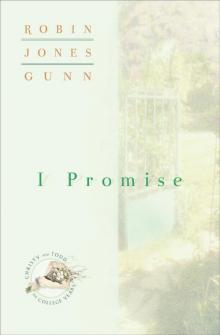 I Promise
I Promise Love Finds You in Sunset Beach, Hawaii
Love Finds You in Sunset Beach, Hawaii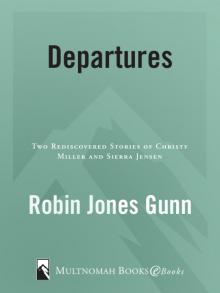 Departures: Two Rediscovered Stories of Christy Miller and Sierra Jensen
Departures: Two Rediscovered Stories of Christy Miller and Sierra Jensen Coming Attractions
Coming Attractions Sierra Jensen Collection, Volume 3
Sierra Jensen Collection, Volume 3 Sierra Jensen Collection, Volume 4
Sierra Jensen Collection, Volume 4 Christy Miller Collection, Volume 2
Christy Miller Collection, Volume 2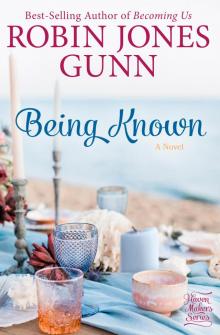 Being Known
Being Known Christy Miller Collection, Volume 1
Christy Miller Collection, Volume 1 Sierra Jensen Collection, Volume 1
Sierra Jensen Collection, Volume 1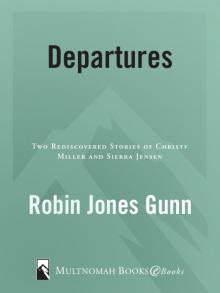 Departures
Departures Engaging Father Christmas
Engaging Father Christmas Only You, Sierra: Book 1 in the Sierra Jensen Series (eBook)
Only You, Sierra: Book 1 in the Sierra Jensen Series (eBook)